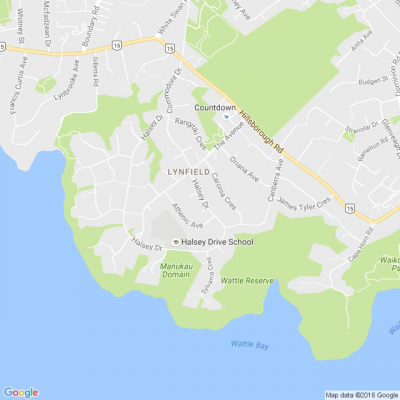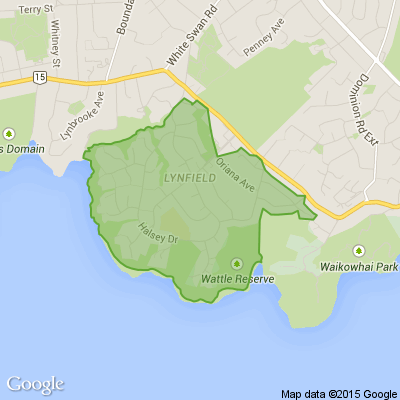Judge overrules lockdown and allows son to visit dying dad, PM orders review of refusals
Oliver Christiansen's dad lay dying and asking: "Where is my boy? Where is my boy?" But Christiansen couldn't see him - he was subject to the Government's mandatory 14-day isolation period after arriving in New Zealand on April 23 on a flight from the United Kingdom. Christiansen spoke today about his "eight days of battling and about 36 hours to spare" before his father Anthony Christiansen, who had brain cancer, passed away. The case has led Prime Minister Jacinda Ardern to order a review into all 24 cases whereby a request to see a dying relative during lockdown was refused by health officials. When he left his family in London, Christiansen thought he had time to sit out the quarantine in New Zealand before spending his father's last days with him. "Things were still looking okay. We thought we had plenty of time to see out the 14 days," he said. But his father's condition deteriorated rapidly. Doctors gave Anthony, a retired associate High Court judge, only a few days to live and suddenly it was a race against the clock. Christiansen, who had no symptoms of coronavirus, applied to the Ministry of Health to allow him to see his dying father on compassionate grounds. The ministry, after first mistaking what Christiansen was asking for, repeatedly refused. An email reply to Christiansen read: "...there is just nothing we can change at this time. 14 days isolation in managed facilities is a mandated requirement in force in New Zealand". Christiansen then directly emailed Director-General of Health Dr Ashley Bloomfield and the Minister of Health David Clark. Bloomfield responded within an hour and a half saying he will refer the letter to the managed isolation team to "carefully consider the information". But again he was denied for a third time. Christiansen also asked for a Covid-19 test - but was refused because he had no symptoms. Today, he said the unwillingness of authorities to test him for Covid-19 was extremely frustrating, as it seemed a "logical step". So Christiansen went to court to challenge Bloomfield and the ministry's refusal to allow him to cut short his quarantine period. "It just seemed like continual automatic rejection which fortunately meant the courts were a last avenue for a final roll of the dice," he said. Meanwhile, his father's health kept going downhill rapidly. His family was "increasingly desperate" for him to get home so he could farewell his father – and vice versa. From his quarantine hotel, he could almost see his family's Auckland home just 5–6km away.
The courts recognised how precious time was, he said, and pushed through his case. At a hearing on Friday in the High Court at Auckland, Justice Tracey Walker said the ministry got it wrong. She said it was "difficult to envisage more compassionate grounds than those presented here". Christiansen told he was able to spend just over a day with his father before he passed away. When he finally got to see his father, it was an emotional time. "It was a massive relief to be able to join the family in time," he said. "There was a lot of emotion, a lot of release – anguish, grief, everything rolled into one. "It makes you realise, in hindsight, just how critical it is that you're there at that time." Justice Walker said in her ruling, released today, there was "a very strong argument" to allow Christiansen to visit his dying father after it was "not considered on the correct legal grounds and did not take account of relevant mandatory considerations". "It had the hallmarks of automatic rejection based on circumscribed criteria rather than a proper exercise of discretion required by the Health Act (Managed Air Arrivals) Order," she said. The judge said the Ministry of Health's decisions to decline permission were, on their face, "legally flawed on more than [one] basis".
"Had the correct approach been followed, Mr Christiansen's application may have successfully come within the compassionate grounds (with low risk of transmission) or exceptional circumstances categories," Justice Walker said. The judge said, in her assessment, overall justice "demands an effective and swift response". She ordered the ministry to permit Christiansen to leave managed isolation to visit his father. But he could only do so if he traveled unaccompanied by car to his dad's home and remained there until his father died. Christiansen was also told to maintain physical separation from other family members at the home and to return on his own within 24-hours of his father's passing in the same car to the isolation facility for the remainder of the 14-day period. Justice Walker further told him to ensure any necessary cleaning and/or quarantining of that private car is carried out, to wear personal protective equipment, including gloves and a face-mask, to comply with any monitoring requirements by police or officials, and to comply with any other reasonable conditions directed by the Ministry to reduce any risk of transmission. The judge also considered the question of "the appropriate deference to the expertise of the decision makers in a time of unprecedented public crisis". "No matter how necessary or demonstrably justified the Covid-19 response, decisions must have a clear and certain basis," she said.
=========================================================
Even Australians get it - so why not Kiwis???
“Ten years ago, if a heatwave as intense as last week’s record-breaker had hit the east coast, Australia’s power supply may well have buckled. But this time, the system largely operated as we needed, despite some outages.
On Australia’s main grid last quarter, renewables and energy storage contributed more than 50% of supplied electricity for the first time, while wholesale power prices were more than 40% lower than a year earlier.
[…] shifting demand from gas and coal for power and petrol for cars is likely to deliver significantly lower energy bills for households.
Last quarter, wind generation was up almost 30%, grid solar 15% and grid-scale batteries almost tripled their output. Gas generation fell 27% to its lowest level for a quarter century, while coal fell 4.6% to its lowest quarterly level ever.
Gas has long been the most expensive way to produce power. Gas peaking plants tend to fire up only when supply struggles to meet demand and power prices soar. Less demand for gas has flowed through to lower wholesale prices.”
Full article: www.theguardian.com...
If even Australians see the benefit of solar - then why is NZ actively boycotting solar uptake? The increased line rental for electricity was done to make solar less competitive and prevent cost per kWh to rise even more than it did - and electricity costs are expected to rise even more. Especially as National favours gas - which is the most expensive form of generating electricity. Which in turn will accelerate Climate Change, as if New Zealand didn’t have enough problems with droughts, floods, slips, etc. already.
Poll: Should the government levy industries that contribute to financial hardship?
As reported in the Post, there’s a $30 million funding gap in financial mentoring. This has led to services closing and mentors stepping in unpaid just to keep helping people in need 🪙💰🪙
One proposed solution? Small levies on industries that profit from financial hardship — like banks, casinos, and similar companies.
So we want to hear what you think:
Should the government ask these industries to contribute?

-
59.4% Yes, supporting people is important!
-
26.1% No, individuals should take responsibility
-
14.5% ... It is complicated
A Neighbourly Riddle! Don’t Overthink It… Or Do?😜
Do you think you know the answer? Simply 'Like' this post if you know the answer and the big reveal will be posted in the comments at 2pm on the day!
If you multiply this number by any other number, the answer will always be the same. What number is this?








 Loading…
Loading…